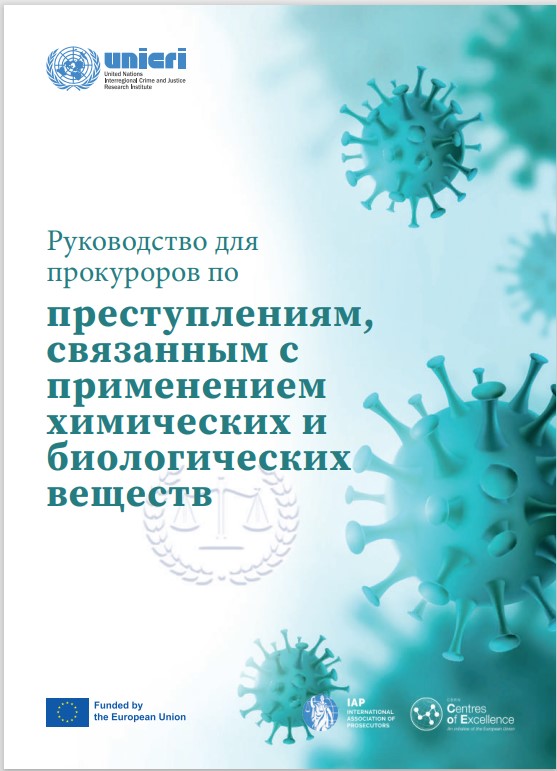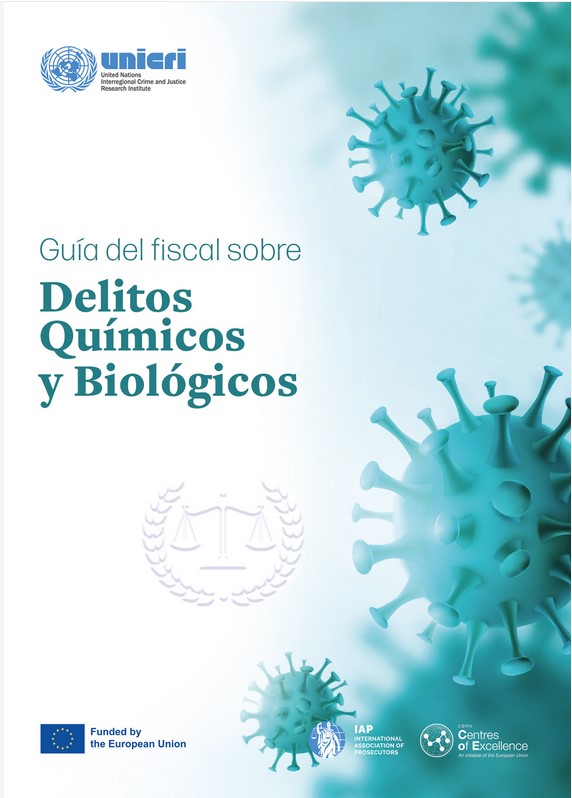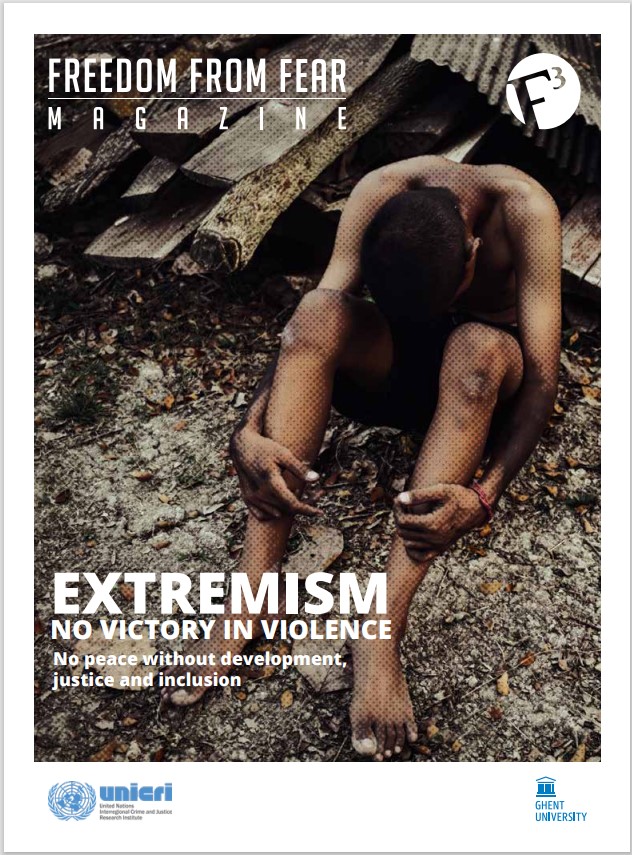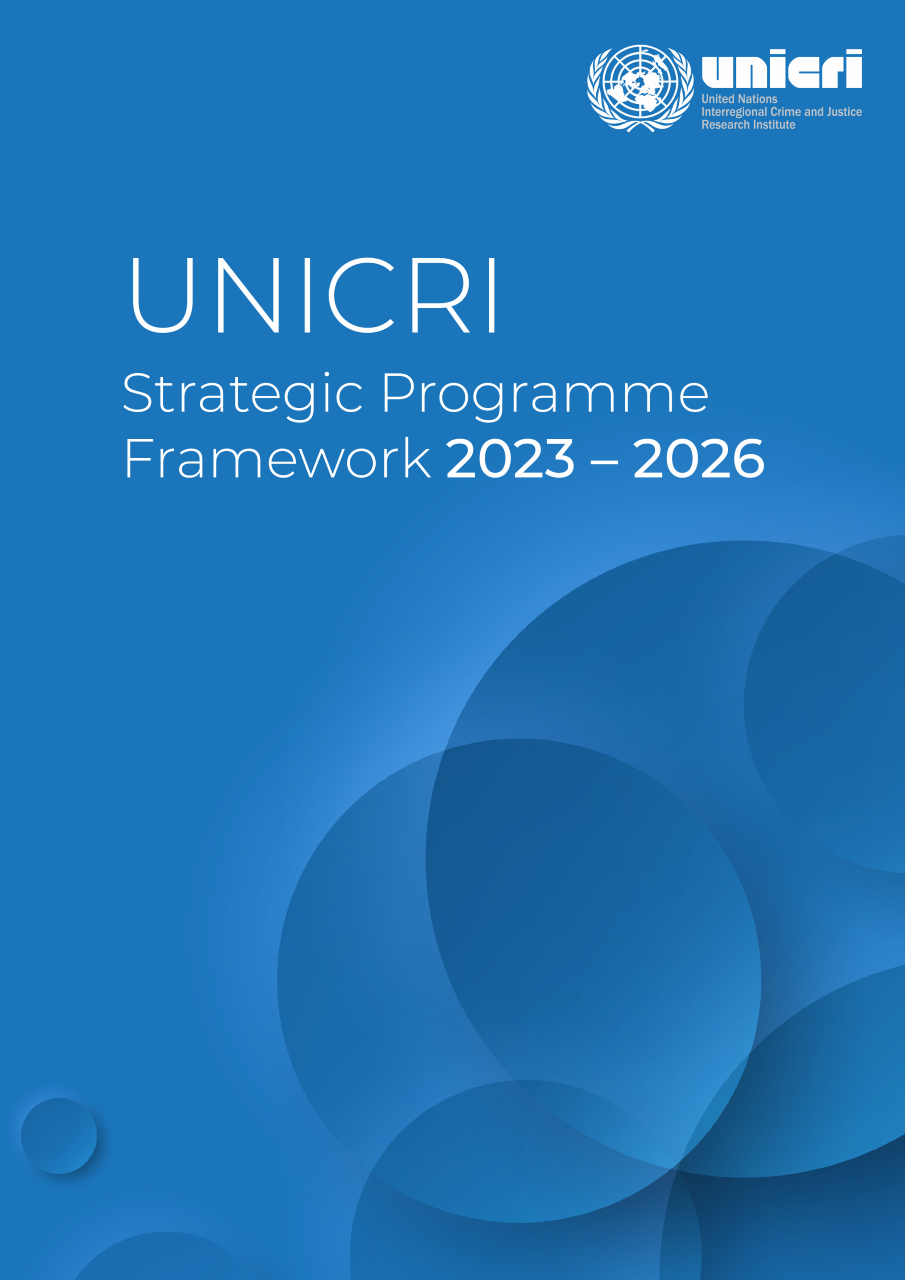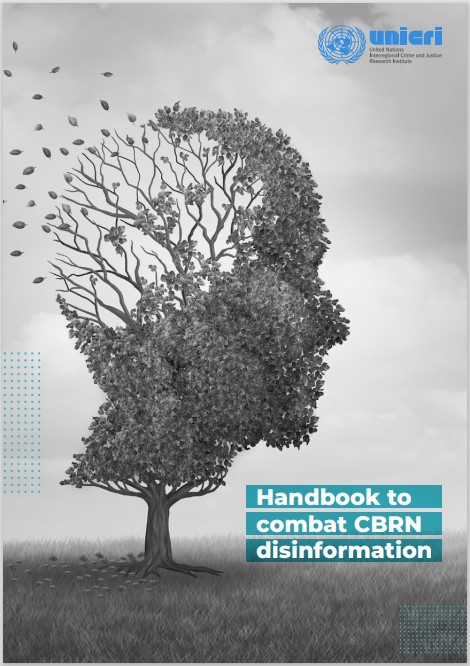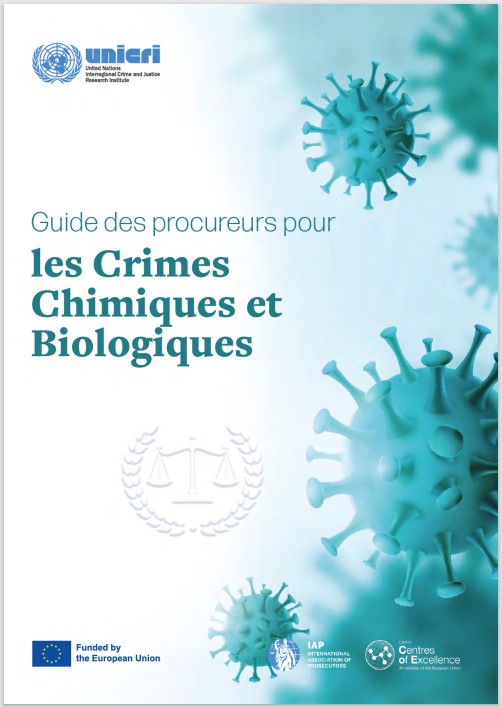

The new dates for the 2026–2027 edition of the LL.M. will be announced soon, together with the deadline for submitting applications.
Overview
The online Master of Laws (LL.M.) in Cybercrime, Cybersecurity and International Law aims at training participants in international law and applied practices to investigate and combat malicious cyber activities, as well as at providing them with in-depth knowledge of existing cybercrime prevention strategies at various levels, with a focus on the international dimensions of cybercrime and cybersecurity.
Participants will also be trained in all areas and disciplines related to law and revolving around cybersecurity: criminology and social sciences, victimology, psychology, economics, organizational sciences, and computer science. Students will be equipped with knowledge of the main trends on cybercrimes with a focus on the profiles of perpetrators and victims, the most-up-to-date intelligence operations, and the methods and analytical tools implemented to understand, adapt, and respond to cybercrime continuously.
The LL.M. is designed to train university graduates and professionals into highly interdisciplinary law experts able to analyse, prevent, investigate and counter cybercrime, in order to protect the community, institutions, and businesses.
The LL.M. is carried out fully online, and it is complemented by a 2-week optional series of workshops in 2027. The LL.M. is ideal for those wishing to pursue a master’s degree by engaging in flexible learning arrangements from where they work and at any time.
Depending on each student’s background and interest, the programme is functional for careers as:
Prosecutors and law enforcement officials dealing with cybercrime investigation and judicial cooperation
(International) cybercrime lawyers
Transnational cybercrime analysts
Researchers investigating transnational cybercrime in public and private research institutions
Officials from international organizations working on cybercrime and relevant policies
Cyber risk management analysts and business continuity professionals in international industries
Through a combination of recorded videos, live webinars, self-study material and readings, selected participants will acquire in-depth knowledge on the theoretical and practical aspects related to cybercrime, cybersecurity and international law.
The LL.M. will focus on the cybercrime phenomena, its perpetrators and victims, as well as the analytical tools needed to understand the ever-changing problems of cybercrime. Once the phenomena of cybercrime have been analysed in detail, the tools to prevent and counter it -from both a legal and technological perspective- will follow and the study plan will culminate with the Cybersecurity challenges and possible ways to prevent and address it.
In addition, foundational courses on international and comparative criminal law will be part of the LL.M. curriculum and the legal perspective will be incorporated to the various subjects.
The LL.M. covers the following subjects:
Foundational Legal Courses:
Public International Law
Comparative Criminal Law
Part 1. The Phenomena
Cybercrime
Cyber Organized Crime
Cyberterrorism and Terrorist Use of Internet
Cybercrimes, Cyberwarfare and International Peace
Artificial Intelligence Cybercrime
Hate Crimes Online
Part 2. The Actors
Part 3. Tools for understanding
Part 4. Tools for combating and preventing
Public International Law
Comparative Criminal Law on Cybercrime
International Legal Frameworks on Cybercrime
International Law Applicable to Cyberwarfare
International Police and Judicial Cooperation in Cybercrime Matters
Hacking by Law Enforcement & related Legal Framework
Basics of Legal Forensics for Public & Private Investigations
Basics of Image Forensics for Public & Private Investigations
Software Security (Introduction to)
Open Source Intelligence & Cybercrime
New Perspective in Cybercrime: from AI to Metaverse & Virtual Reality
Use of Algorithms & AI for Investigation and Criminal Trial
Use of AI for Prevention
Risk Management & Cybersecurity
Cybersecurity Governance & Crisis Management in International Companies
Cybersecurity Social Engineering Solutions
Public-Private Partnerships against Cybercrime
Cybercrime Prevention
Workshop I on Cybercrime (Online Counterfeiting & Human Trafficking)
Workshop II on Cybersecurity (Comparative Analysis of National Security Strategies and Cybersecurity in Healthcare)
The final graduation project will consist of a paper to be submitted after having completed all courses.
Upon successful completion of the programme, students will be awarded an LL.M. degree officially issued by the University for Peace (UPEACE).
The partner organizations:
The LL.M. in Cybercrime, Cybersecurity and International Law is organized by the United Nations Interregional Crime and Justice Research Institute (UNICRI) and the University for Peace (UPEACE) in cooperation with the Centre of Security and Crime Sciences of the University of Trento and University of Verona (CSCS).
UNICRI is one of the main training and research institutes of the UN System. It was established in 1968 and is mandated to support countries worldwide in preventing and countering crime and promoting justice and security in support of human rights, peace and development. Over the years the Institute has developed a sound expertise in research and training, which is reflected in the organization of several capacity-building activities and specialized postgraduate courses.
UPEACE, headquartered in Costa Rica, is a Treaty Organization established in 1980 through an International Agreement approved by the United Nations General Assembly in Resolution 35/55, and has the mandate “to provide humanity with an international institution of higher education for peace and with the aim of promoting among all human beings the spirit of understanding, tolerance and peaceful coexistence, to stimulate cooperation among peoples and to help lessen obstacles and threats to world peace and progress, in keeping with the noble aspirations proclaimed in the Charter of the United Nations”. By virtue of the mandate granted to it by Article 15 of the Charter of the University for Peace, annexed to the International Agreement Establishing the University, UPEACE conducts Master's and Doctorate Degree programmes in fields that promote peace and security.
The Centre of Security and Crime Sciences (CSSC) is a joint research Centre of the University of Trento and the University of Verona. Founded in 2021, the Centre conducts applied research and high-level training activities to identify, analyse, prevent and mitigate security, safety, crime and risk management risks. The Centre’s research and knowledge dissemination activities are developed using an interdisciplinary approach that integrates data from the fields of criminology, law, statistics, mathematics, information sciences, sociology, human sciences and engineering to produce tailored solutions to tackle security and safety issues of modern global challenges.
Structure, content and methodology
The LL.M. is characterized by an interdisciplinary academic strategy that integrates theory and practice, favours active exchange of ideas, and furthers the comparative and critical thinking skills of the students.
Throughout the master’s implementation (October – November), participants will have access to the e-learning platform of the LL.M. Programme, on which, in addition to self-study, they will have to attend webinars, carry out group projects and other interactive activities with the support of a tutor.
Each block of three weeks will be composed of 2 modules. Participants will have to carry out all activities foreseen for the module but with the flexibility to organize the workload to suit their own schedules with asynchronous forums and recordings.
Material and activities for each module of three weeks will be organized as follows:
A series of selected mandatory and optional reading material. All reading material will remain available during the entire duration of the programme.
Every week, there will be 2 recorded lectures per module lasting -approximately- one hour each. Out of 6 lectures foreseen, one will take place live to allow students to interact synchronously with the professors and among each other.
The date and time for the live webinars will differ from module to module and will be communicated on the platform. All webinars will be recorded and uploaded on the platform for students who are unable to join
A discussion forum will be available each week where the instructor will pose a question, and students will be required to participate and engage with the instructor and with their classmates. Forums will usually be opened for discussion towards the end of each week in order to allow students to go through all mandatory lectures and readings.
All the above activities will envisage between 13 to 15 hours per week of self-study of which 5 hours are devoted to the interactive materials (webinars or recordings, forums or other tools).
At the end of each module a test (such as a quiz or a case study analysis) will take place to assess the knowledge on the module's topics.
Additionally, an optional 2-week in-person workshops (July) will be organized. These workshops foresee full time activities where students will additionally be tutored by a faculty advisor who will support them in elaborating the final graduation project.
Some of the classes delivered during this phase will also be offered online, along with dedicated training sessions, for those who are not able to join. The attendance in-person to the workshops is not compulsory. All students (both attending in-person and online) will receive 4 UPEACE credits upon completion of the workshops.
The submission of the final graduation project is compulsory, and its grade will count 6 university credits.
In order to be awarded the final Master of Laws Degree worth 42 UPEACE credits (equivalent to 42 US credits/63 ECTS), students need to complete all activities and foreseen exams. Attendance and participation in activities will be considered towards the final assessment of student’s performance.
Faculty
The Faculty of the Master of Laws (LL.M.) in Cybercrime, Cybersecurity and International Law is composed by international academics, including UPEACE professors, UNICRI staff members, experts and practitioners, also from the UN system:
Mihir Kanade – Head of the Department of International Law and Human Rights at UPEACE and Director of the UPEACE Human Rights Centre; Member of the UN Human Rights Council’s Expert Mechanism on the Right to Development, Former lawyer in the Supreme Court of India and the Bombay High Court, focusing on issues of fundamental human rights violations; Adjunct faculty at Universidad Alfonso XI El Sabio (Spain), Long Island University (USA), and Universidad de Los Andes (Colombia).
Gabriele Baratto – Senior Researcher, eCrime, Faculty of Law and Institute of Safety and Security Sciences, University of Trento, Italy.
Jennifer Bramlette, Legal Officer at Counter-Terrorism Committee Executive Directorate (CTED).
Nicolò Bussolati – Criminal Lawyer; Consultant in Legal and Cyber Issues; International Criminal Law Specialist.
David Décary-Hetu – Associate Professor at the Department of Criminology of the University of Montreal, Canada.
Andrea Di Nicola – Associate Professor of Criminology and Scientific Coordinator of eCrime, Faculty of Law, and Institute of Safety and Security Sciences, University of Trento, Italy.
Mariateresa Garrido - Assistant Professor in the Department of International Law at UPEACE and the Doctoral Program Coordinator.
Thomas Holt – Professor of Cybercrime at the School of Criminal Justice at Michigan State University, USA.
Krisztina Huszti-Orban, Human Rights Officer at the United Nations Office of Counterterrorism (UNOCT)
Jaishankar Karupppannan - Founder / Principal Director & Professor of Criminology and Justice Sciences at the International Institute of Justice & Police Sciences, India and Professor of Criminology at Saveetha School of Law, Chennai, India.
Steven Kemp – Assistant Lecturer in Criminology at the University of Girona, Spain
Anita Lavorgna - Associate Professor in the Department of Political and Social Sciences at the University of Bologna, Italy.
Fernando Miró – Professor of Cybercrime & Cybersecurity, Specialized Criminal Practice and Criminological & Victimiological Prevention at University Miguel Hernandez de Elche, Alicante, Spain.
Boban Misoski – Professor Criminal Procedural Law and Head of Master Studies in Criminal Law, Iustinianus Primus Law Faculty, Ss. Cyril and Methodius University, North Macedonia.
Aunshul Rege – Associate Professor at the Department of Criminal Justice at Temple University, Philadelphia, USA.
Marco Romagna – Professor of Cybercrime and Cybercriminology at Criminology Department of Leiden University, The Netherlands.
Elena Maria Rusconi – Professor of Psychobiology and Physiological Psychology, University of Trento.
Barbara Vettori - Associate Professor of Criminology at the University of Naples Federico II, Naples, Italy.
Mauricio Vieira - Assistant Professor and Head of the Chair on Countering Illicit Trade and Preventing Transnational Organized Crime at the University for Peace
Sarah Tas - Assistant Professor of European and Comparative Administrative Law at Maastricht University
Adejoke Odebade - Ph.D. Researcher at Staffordshire University's Smart Systems, AI, and Cybersecurity Research Centre (UK)
Andrea Ghirardini - Consultant and Expert on Computer Forensics for UNICRI, law enforcement agencies and private companies.
Gianluigi Me - OF-4 at Carabinieri Law Enforcement, Deputy Head of the ICT Security Department at Carabinieri Headquarters; Adjunct Professor at the University of Rome “Tor Vergata” and LUISS Guido Carli University; Expert/Trainer for CEPOL and other organizations.
Lorenzo Cavassa - IT Professional, Cyber Security Expert, AI and Quantum Computing Specialist
Career opportunities
The LL.M. aims to build the capacities of interdisciplinary experts who will be able to communicate at all levels with all fields related to cybersecurity, to understand technical issues, to combine the understanding of the problems with technical and non-technical solutions, drawing also on information and communication from technology specialists.
During the Master, participants will interact with lawyers, law enforcement agents and prosecutors, officials of international organizations and industry professionals who deal with cybercrime and cybersecurity in their daily work, providing an operational, case-based approach that addresses real-world problems.
The programme further envisages dedicated sessions on career guidance and professional development, including reference to the UN System.
With these considerations in mind, the LL.M. Degree will enable participants to have the required knowledge and skills to engage, or further develop, a professional career as:
Prosecutors and law enforcement officials dealing with cybercrime investigation and judicial cooperation
(International) cybercrime lawyers
Transnational cybercrime analysts
Researchers investigating transnational cybercrime in public and private research institutions
Officials from international organizations working on cybercrime and cybercrime policy
Cyber risk management analysts and business continuity professionals in international industries
Tuition fees and exemption
Tuition fees
Tuition fees amount to USD 11,000.
Please note that:
Tuition fees do not cover additional expenses such as those related to VISA, travel, food, and accommodation for students wishing to participate in the in-person workshop.
Tuition fees are non-refundable under any circumstances.
The only event under which tuition fees will be refunded is the cancellation of the course by its organizers.
Applicants receiving an offer for the 2025-26 edition of the LL.M. cannot defer it to the following academic year.
Fee Exemptions
A limited number of fee exemptions may be available. These are awarded on the basis of merit and giving priority to students coming from developing countries and women. Please indicate and motivate your request of fee exemption in the application form. Candidates will be informed in the course of the selection process about the availability of such exemptions, which will be awarded only at the end of the selection process.
Cancellation Policy
UNICRI and UPEACE reserve the right to cancel the programme due to low enrolment or unforeseen circumstances. Participants will be notified of any change in the programme. If the programme is cancelled by the organizers, tuition fees will be reimbursed to participants.
In case of cancellation, the organizers will not be liable for any loss, including travel and accommodation costs suffered by or on behalf of any person who wished to attend the course.
In case of limitation linked to extraordinary health and safety situations, as declared by the Italian Government and/or local and UN Campus authorities, the organizers reserve the right to modify the programme, including through online implementation of the In-person workshops. In such circumstances, no reduction or reimbursement of tuition fees is foreseen.
Entry requirements
Hold at least a 3-year university degree issued by an internationally recognized university in Law, Political Science, International Relations, Criminology, Social Sciences, Information Engineering, Psychology/Cognitive Sciences, or equivalent academic subjects;
- Full proficiency in written and spoken English. The recommended level of proficiency corresponds to a minimum score of 6.5 (IELTS); 90 (internet based TOEFL); grades A, B (Cambridge Certificate of Proficiency English) or grades A, B, C (Cambridge Certificate of Advanced English);
Computer literacy in standard software applications.
How to apply
The new dates for the 2026–2027 edition of the LL.M. will be announced soon, together with the deadline for submitting applications.
Applicants will need to submit a duly completed application form (in MS Word format only) and send it, together with all the documents listed below, to the following email address: unicri.llmcyber@un.org:
Motivation letter, a personal statement explaining why you are interested in this particular programme and outlining any relevant experience you have. The statement should be written in English and not exceed one page.
Curriculum Vitae in English.
Scanned copy of passport reproducing only the personal details and photo page(s).
Official English certificate if available (see section on entry requirements and item number 10 of the application form).
An official copy of the bachelor’s diploma(s) in its original language issued by the competent University.
An official certified translation of the above diploma(s) into English if the original document(s) is issued in another language. *
An official copy of the university transcript(s) of records of all the university studies completed or ongoing in the original language issued by the competent University. The official transcript of records must include the following information: full titles of all the courses completed throughout the degree; dates of completion of each course (or at the very least the overall time spent to complete the entire programme); grades obtained; credits awarded; and information on the grading scale.
An official certified translation of the above transcript(s) of records into English if the original document(s) is issued in another language.
*The official certified translation of the university diploma(s) and transcript(s) of records are issued by the National Competent Authority of the country where the student has conducted his/her studies according to national regulations.
Selection process
All applicants will be evaluated and admitted based on the merits of their application, which will be assessed against the following criteria:
The organizers retain the possibility of conductiing an interview with applicants.
Applicants will be notified on the results of the selection process via e-mail within 7 working days of the submission of the application.
Upon receiving the offer, applicants will have 3 days to accept the offer (from the date of the confirmation email), and after that, 10 days to complete the payment.
Wait-listed applicants will be notified on the status of their application.
In the light of the above, we strongly advise students to plan for the payment of the fees already at the time of the application. These deadlines cannot be postponed and payment in multiple instalments is not allowed.
LL.M. Office Contacts
E-mail: unicri.llmcyber@un.org
Tel.: (+39) 011 6537 157 -- (+39) 011 6537 111
Postal address
LL.M. in Cybercrime, Cybersecurity and International Law, UNICRI
Viale Maestri del Lavoro, 10 - 10127 - Torino ITALY
